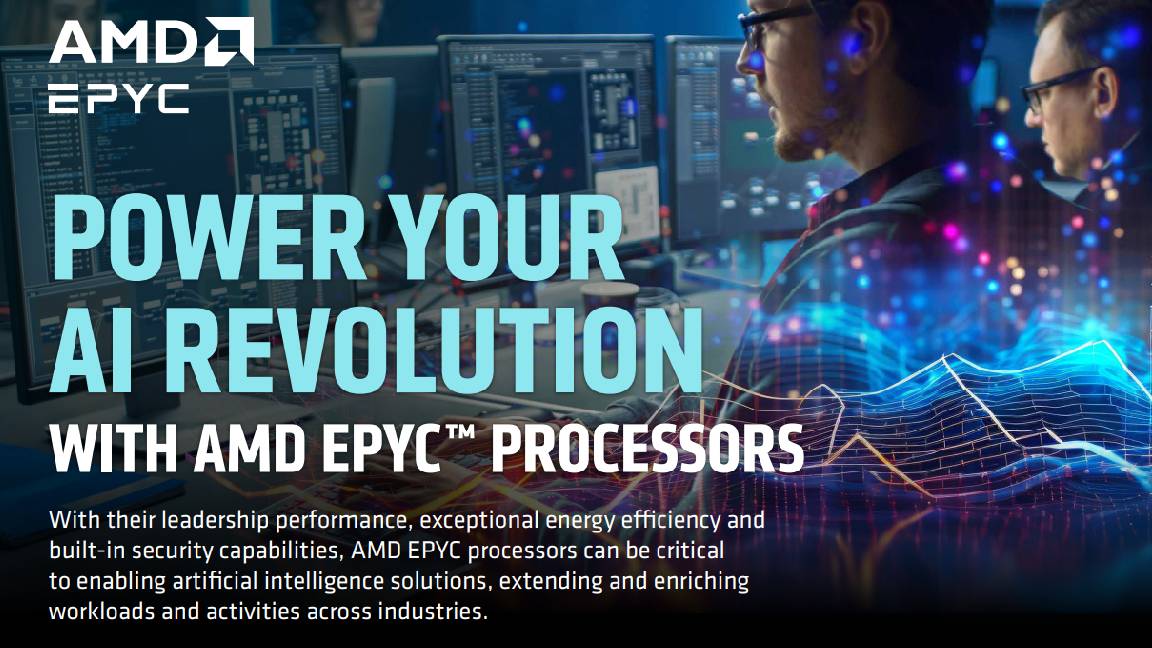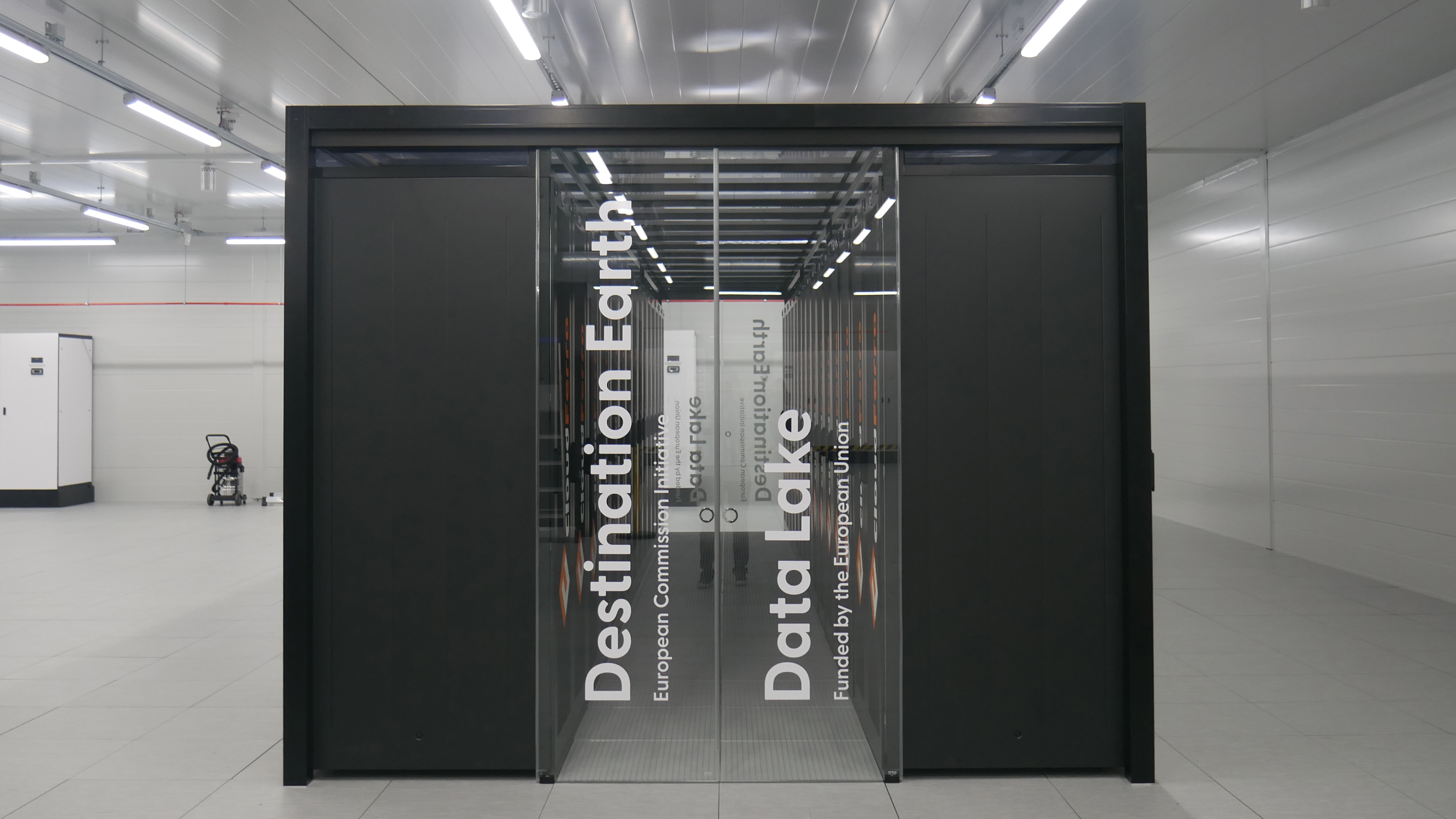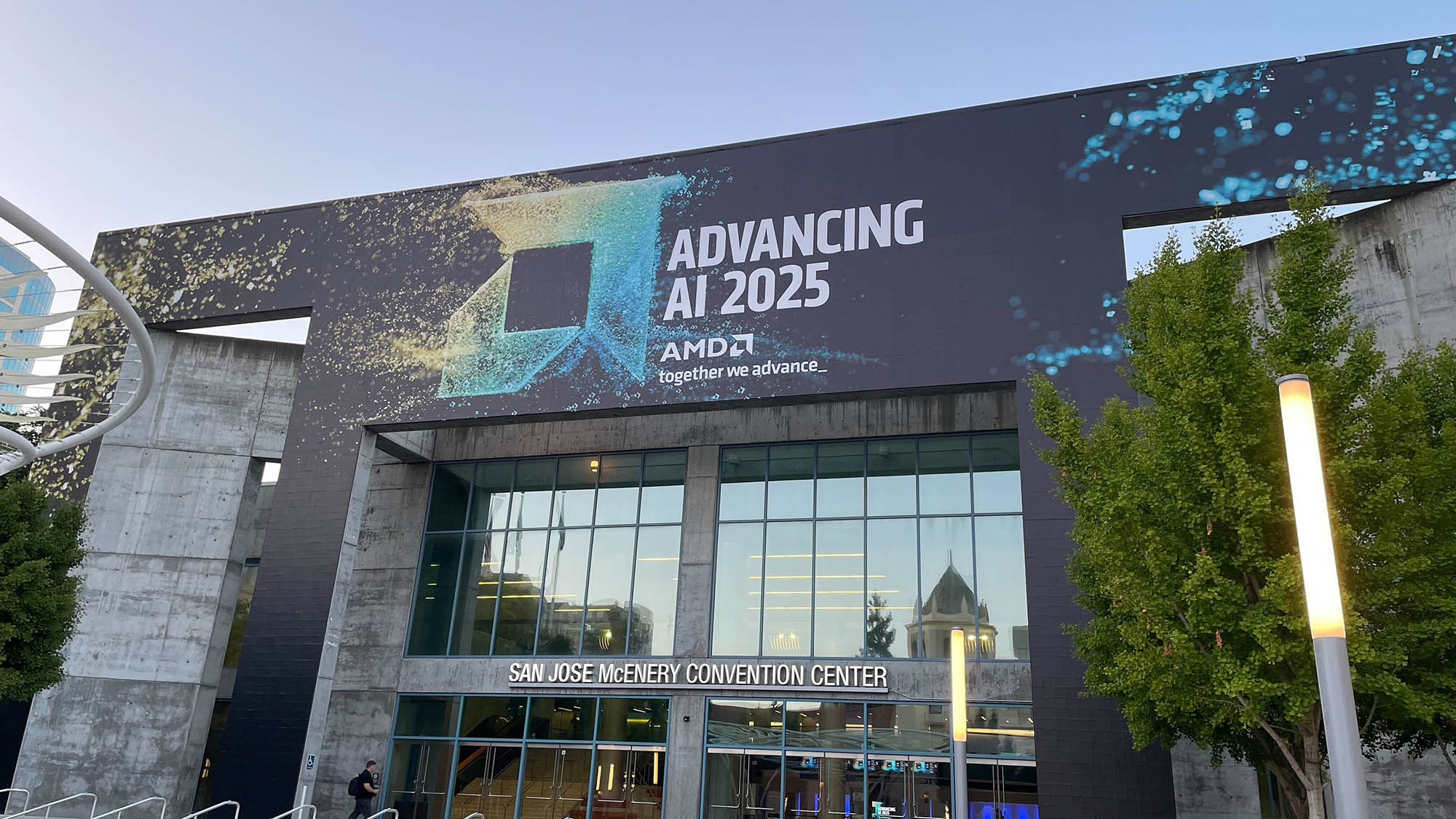AMD retains its position as the partner of choice for the world’s fastest and most efficient HPC deployments
AMD EPYC processors and AMD Instinct accelerators have been used to power a host of new supercomputers globally over the last year

AMD’s Frontier supercomputer has retained its position as the fastest supercomputer in the world for the third year in a row.
The announcement was made at ISC High Performance 2024 and highlights the firm’s continued high-performance computing leadership (HPC), according to AMD.
Housed at the Oak Ridge National Lab, Frontier is powered by AMD EPYC CPUs and AMD Instinct GPUs, and recorded a Linpack score of 1.2 exaflops based on the latest Top500 list.
The list now features three new systems, including the El Capitan Early Delivery System (EDS), RZAdams, and Tuolumne - all of which came in at 46, 47, and 48 respectively on the list.
These systems mark the first supercomputers on the Top500 list powered by AMD Instinct MI300A APUs, launched in December 2023.
Brad McCredie, corporate vice president and general manager for data center and accelerated processing at AMD, said this marks a significant moment for AMD and showcases its leadership in the HPC field.
AMD now powers 1567 supercomputers on the Top500 list, marking a 29% increase on last year. The firm also boasts 157 systems on the Green500 list, which ranks the most efficient supercomputers in the world.
Sign up today and you will receive a free copy of our Future Focus 2025 report - the leading guidance on AI, cybersecurity and other IT challenges as per 700+ senior executives
“The AMD Instinct MI300A APUs are setting the pace for innovation, delivering leadership performance and efficiency for critical workloads sitting at the convergence of HPC and AI,” he said.
“We are thrilled with the progress shown by LLNL today with their early submissions using AMD Instinct MI300A APUs. We look forward to our continued engagement with the teams at HPE and LLNL for further optimizations to drive increased performance as we help bring up El Capitan.”
AMD is driving ahead in the exascale era
AMD and HPE collaborated to build El Capitan, marking the continuation of a technology partnership that started while developing the Frontier system.
The company said that the debut of the El Capitan EDS, RZAdams, and Tuolumne systems demonstrates that the El Capitan system is officially on track to become the second supercomputer to surpass the exaflop barrier.
"RZAdams is a critical addition to LLNL's existing and highly capable unclassified computing ecosystem,” said Bronis R. de Supinski, chief technology officer for Livermore Computing, LLNL.
Performance boosts created by the AMD Instinct MI300A APUs mean that this system will be a “strategically significant resource” and help support a wide range of scientific research initiatives, de Supinkski added.
“RZAdams is supporting essential opportunities for code porting, optimization and software development for some of the applications that will eventually run on El Capitan. It is also allowing our scientists to push the boundaries of discovery with greater speed and efficiency than previous unclassified systems.”
Over the last year, AMD EPYC processors and AMD Instinct accelerators have been used to power a raft of new supercomputers, the company revealed.
This includes support for Italian energy company, Eni, which announced its new HPC6 supercomputer, powered by AMD EPYC CPUs and AMD Instinct GPUs.
Upon completion, HPC6 will be one of the world’s most powerful supercomputers designed specifically for industrial applications.
Lenovo and the University of Paderborn also recently announced plans to build a new supercomputer powered by AMD EPYC CPUs. The installation of the system is expected to start in the second half of 2024.
Additional support from AMD last year included the use of AMD Instinct MI300A accelerators to power the Hunter system, housed as the High-Performance Computing Center of the University of Stuttgart (HLRS).
Development of the University of Krakow’s new supercomputer, Helios, will be powered by 4th gen AMD EPYC CPUs
AMD launches new Alveo V80 Accelerator for HPC
AMD also announced the launch of the Alveo V80 Compute Accelerator Card, which aims to provide optimized hardware-accelerated systems designed for a wide range of compute-intensive workloads.
This new accelerator is designed to overcome performance bottlenecks for compute-intensive workloads with large data sets typically encountered in HPC, data analytics, and network security applications.
The Alveo V80 accelerator card is powered by the AMD Versal HBM Series adaptive SoC, and delivers up to a two-time increase in both memory bandwidth and logic density.
Similarly, it can provide up to four times the network bandwidth compared to the previous generation, delivering “massive hardware parallelism” and 820GB/s memory bandwidth.
The system allows for greater hardware flexibility, supporting real-time acceleration of diverse and custom workloads and data types used in genomic sequencing, sensor processing, blockchain, and next-generation firewall and network security.
RELATED WHITEPAPER

Supermicro confirmed it will include the Alveo V80 accelerator with AMD EPYC CPU-powered Supermicro servers.
“Supermicro’s strategic and long-standing collaboration with AMD enables us to address customer requirements for grappling with compute-intensive and memory-bound workloads at scale with superior time-to-delivery,” said Michael McNerney, senior vice president for marketing and network security at Supermicro.
“By leveraging the AMD Alveo V80 accelerator alongside our A+ server family, including the AS-4125GS-TNRT, customers can immediately take advantage of this compact 4U server solution for deployments where compute density and memory bandwidth are critical.”
ITPro is a global business technology website providing the latest news, analysis, and business insight for IT decision-makers. Whether it's cyber security, cloud computing, IT infrastructure, or business strategy, we aim to equip leaders with the data they need to make informed IT investments.
For regular updates delivered to your inbox and social feeds, be sure to sign up to our daily newsletter and follow on us LinkedIn and Twitter.
-
 AI Infrastructure for Business Impact: Enabling Agentic Intelligence with Scalable Compute
AI Infrastructure for Business Impact: Enabling Agentic Intelligence with Scalable Computewhitepaper
-
 The role of enterprise AI in modern business
The role of enterprise AI in modern businessSupported Artificial intelligence is no longer the stuff of science fiction; it's a powerful tool that is reshaping the business landscape
-
 Destination Earth: The digital twin helping to predict – and prevent – climate change
Destination Earth: The digital twin helping to predict – and prevent – climate changeSupported How the European Commission is hoping to fight back against climate change with a perfect digital twin of our planet, powered by Finland's monstrous LUMI supercomputer
-
 Are Copilot+ PCs finally ready for the enterprise?
Are Copilot+ PCs finally ready for the enterprise?Supported The next generation of AI PCs has high-performance NPUs and generative AI features – but are they right for your business?
-
 What is parallel processing?
What is parallel processing?Supported It’s the backbone of the internet and supercomputing – here’s everything you need to know about parallel processing
-
 Open source: Why open ecosystems matter
Open source: Why open ecosystems matterSupported Driving success with AI will require an industry-wide collaborative approach spanning the software and hardware domains
-
 AMD Advancing AI 2025: Racks, openness, and the spectre of Nvidia
AMD Advancing AI 2025: Racks, openness, and the spectre of NvidiaOpinion Can the chipmaker really step out of the market leader's shadow?
-
 What is exascale computing? Exploring the next step in supercomputers
What is exascale computing? Exploring the next step in supercomputersSupported 60 years after the birth of the first supercomputers, we are entering a new era



